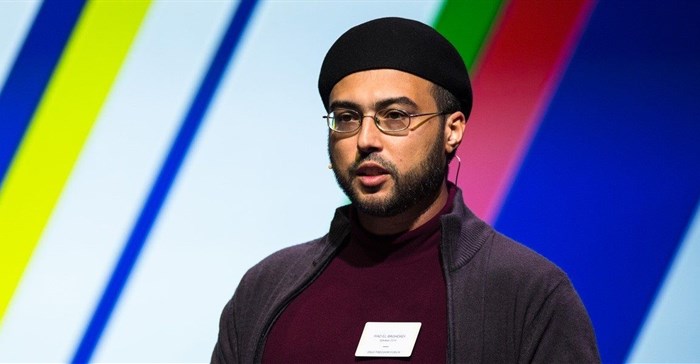With liberal democracy under threat and assault across the world, it is up to citizens to do the work of governments to bring the perpetrators to task.

Iyad el-Baghdadi is a Palestinian writer based in the United Arab Emirates who rose to prominence following his diligent reporting of the Arab Spring uprisings and their aftermath.
Iyad el-Baghdadi told the story of how he travelled on the day of the US elections. “When I landed, there was this weird dark energy around me. Against expectations, Hillary Clinton did not win the elections,” explained el-Baghdadi. The project he works on is Islam and liberty, but he said this is ironic. “I was thinking of liberty in Islam, but actually liberty is under assault across the world.”
El-Baghdadi was one of the speakers at the recent Oslo Freedom Forum (OFF) which took place in Johanneburg. The forum is an international conference that brings together leaders form media, policy, business, advocacy, and technology to discuss how to make the world more peaceful and free.
Refugee crisis
One of the unintended consequences of dictatorships is refugees. “There would be no refugee crisis in the world if there were no authoritarian governments in the world. People do not flee Denmark,” said Thor Halvorssen, founder of the OFF.
“Refugees are not fleeing a war, they are fleeing an authoritarian government that started a war because all war involves such government. They are in a state of permanent war with their own people and occasionally with a foreign power. War does not occur between liberal democracies,” he said.
Refugees cause internal disruption in democracies and this has led to the rise of populists, who are taking advantage of the situation, seeding xenophobia. In South Africa the issue of xenophobia has often reared its ugly head. “But no one asks why these people flee their own countries,” said Sello Hatang, chief executive of the Nelson Mandela Foundation. “We need to look at the leadership in those countries that are causing these people to flee. In Africa, the big brothers tend to club together and so they do not ask the difficult questions of each other.”
Until South Africa realises its responsibility to the continent, which is to hold dictators responsible, our democracy is not ours, he added.
“Madiba said that if someone is oppressed, then you cannot enjoy your freedom in South Africa, our democracy needs to stretch further than just our land.”
Halvorssen called South Africa a beacon of hope on the continent and a model for the rest of Africa which is riddled with dictatorships.
Solution lies in solidarity
A dictatorship produces a deeper inequality than just economic inequality, said el-Baghdadi. “As long as human worth and dignity is worth more north of the Mediterranean than the south, humans will attempt to cross the Mediterranean."
The solution is solidarity, said el-Baghdadi. “The bad guys have a lot of solidarity and they cooperate amongst themselves. This does not stop at nation state borders. Our solidarity needs to be the same and we need to do better. We need to realise that the real threat is not right vs left, or East vs West, it is between people who want to coexist and people who authorise and cause fear.” This new way of thinking, which is rather quite obvious, is the only thing that can threaten authoritarians, added Halvorssen.








































